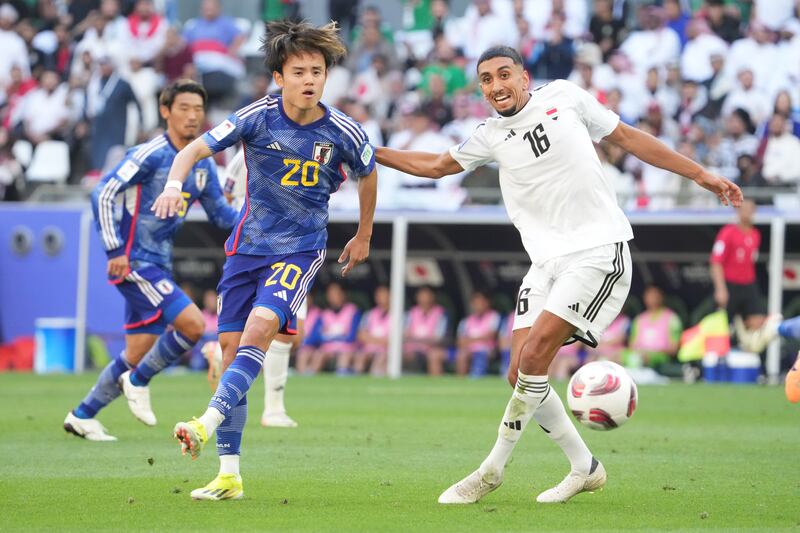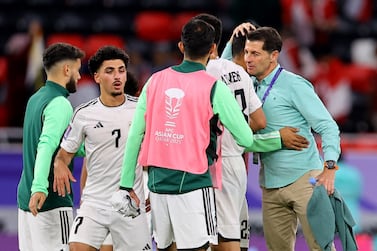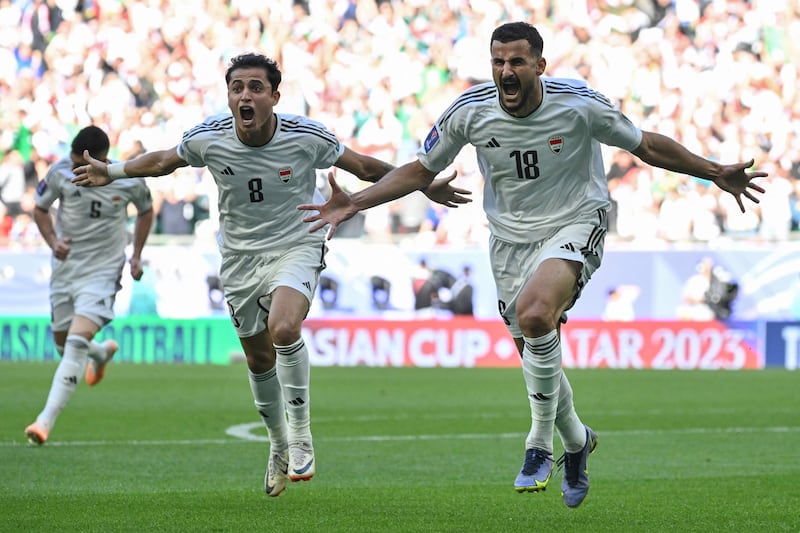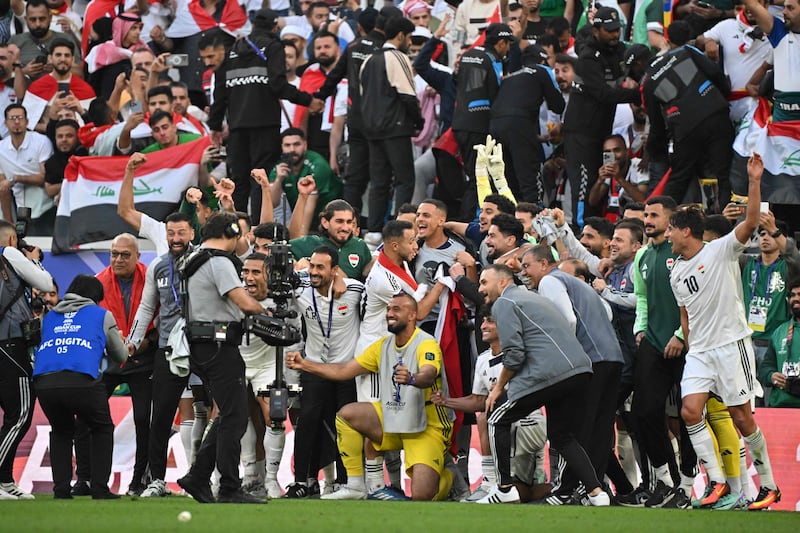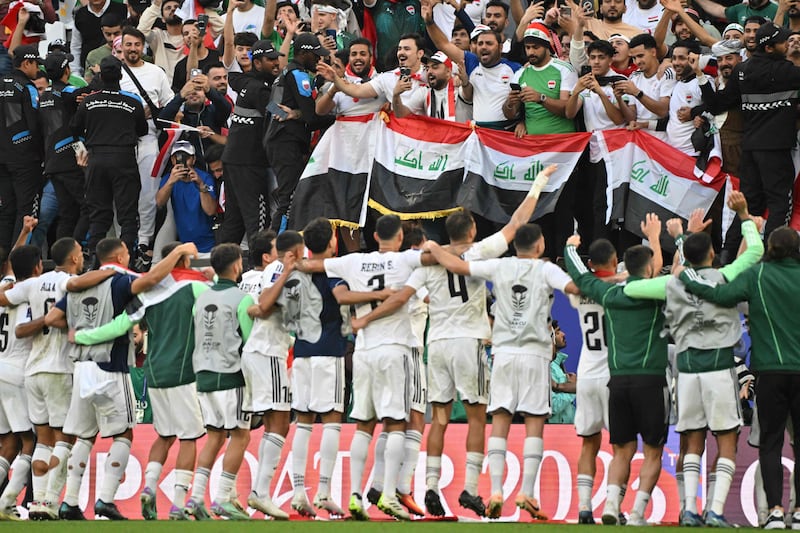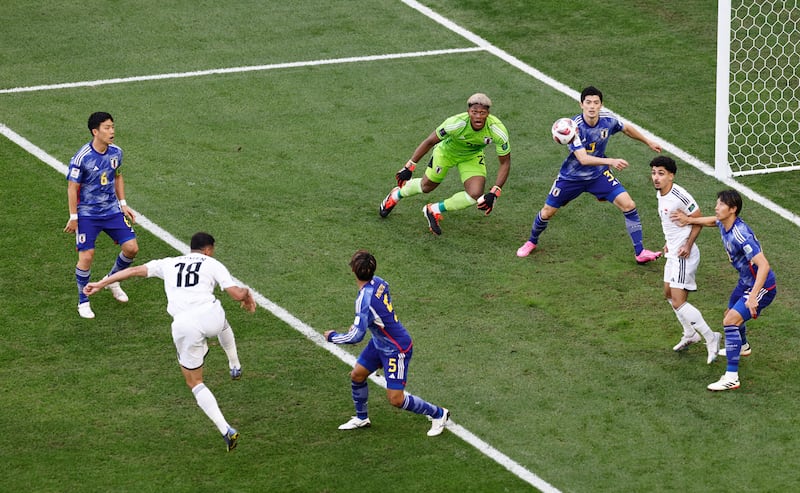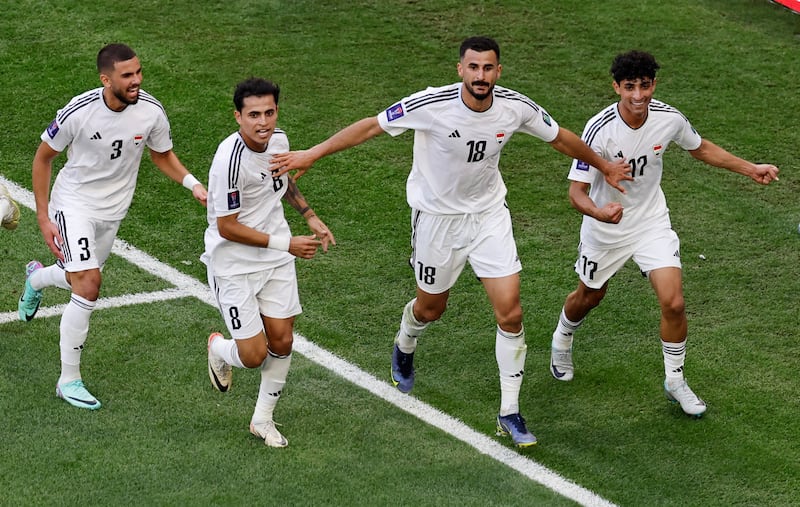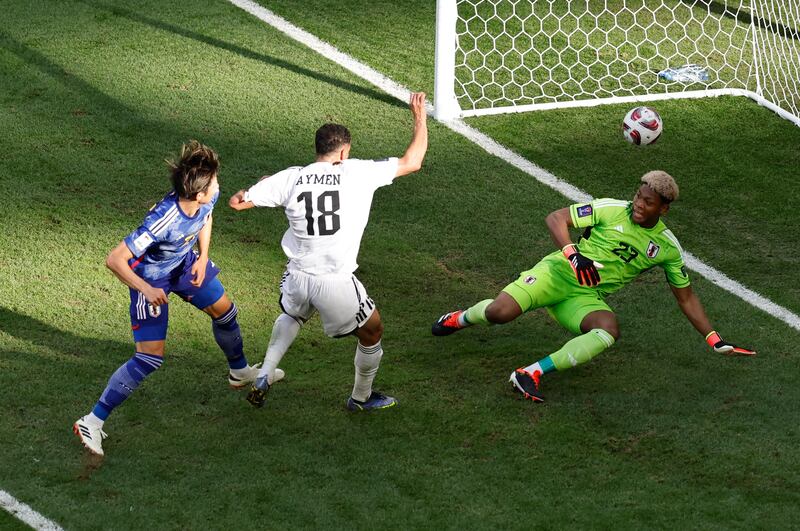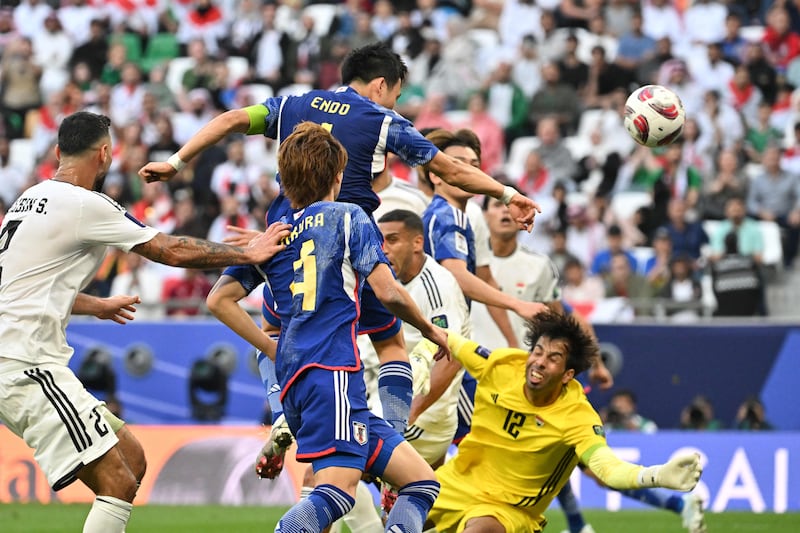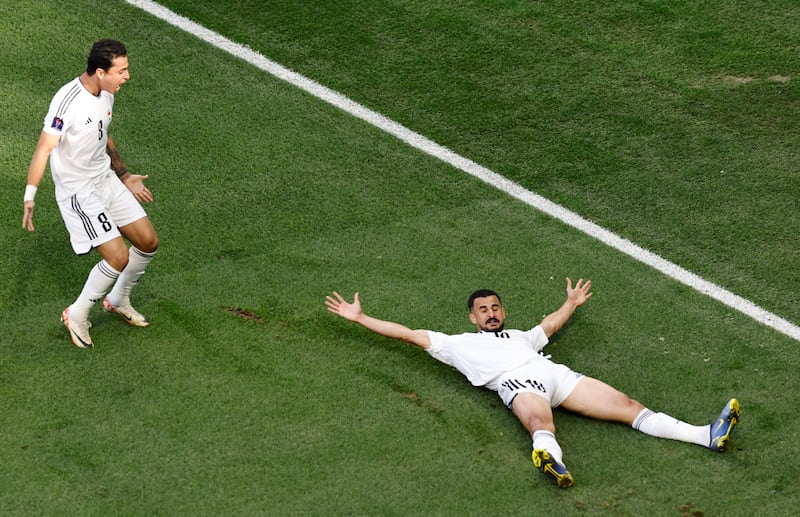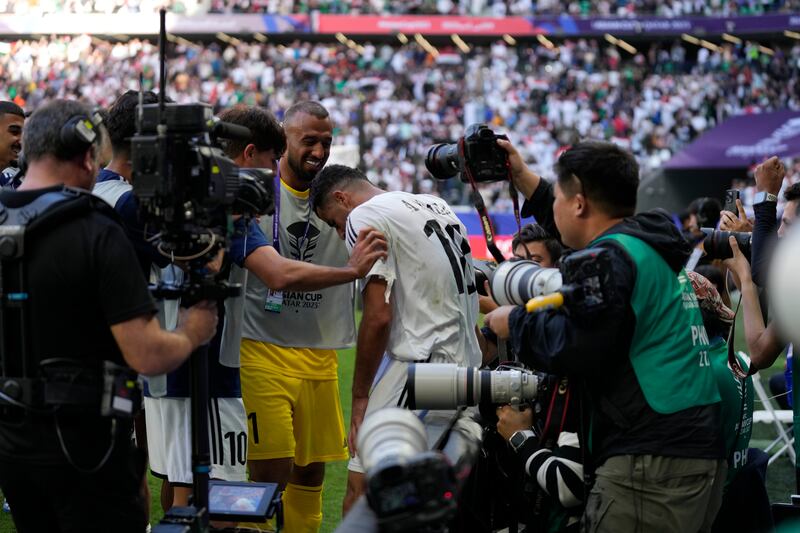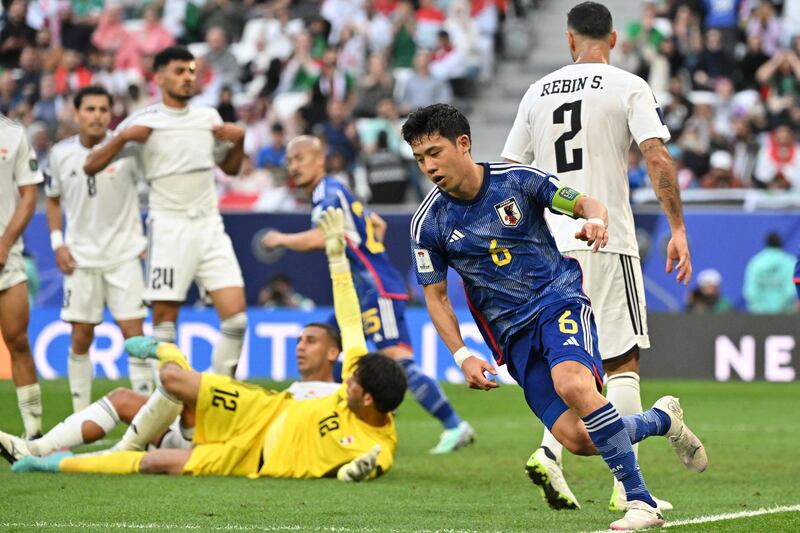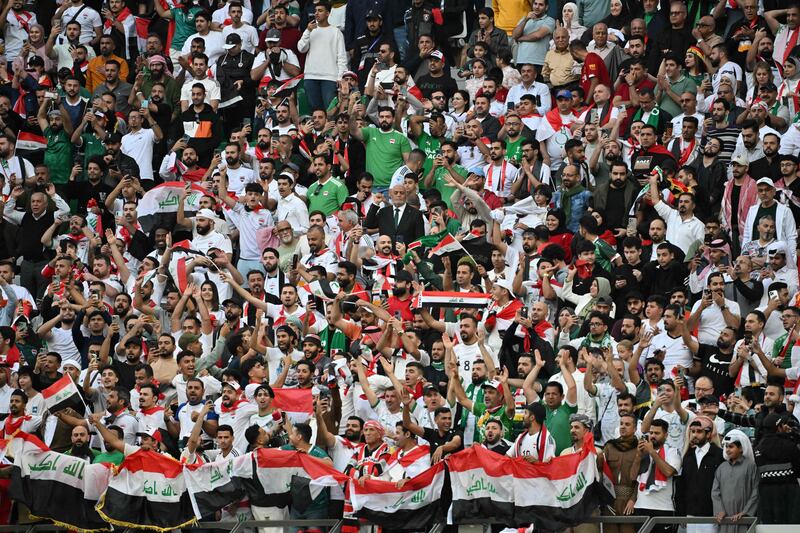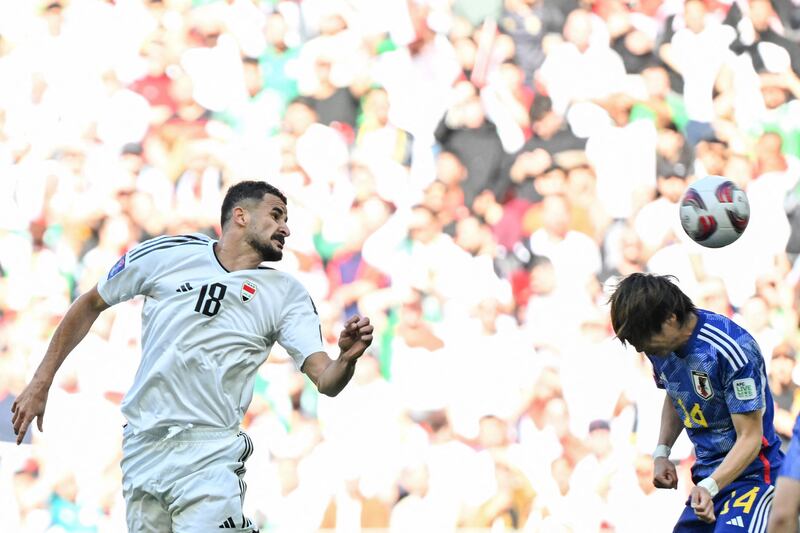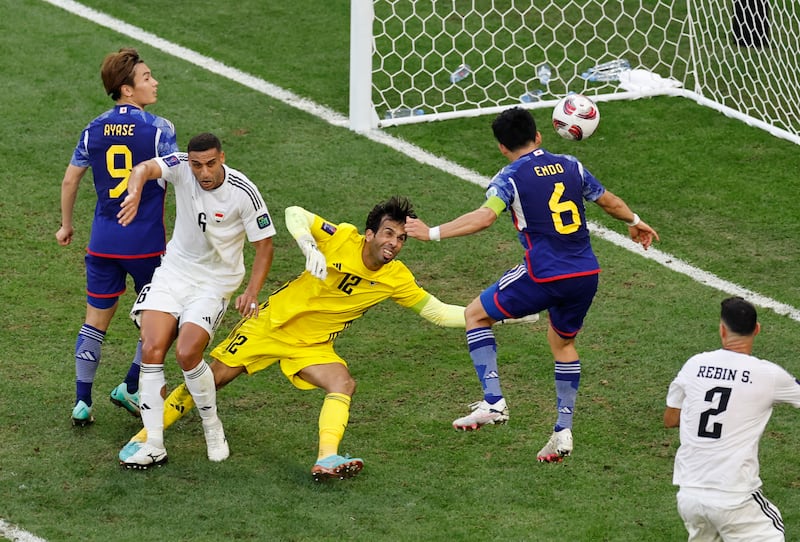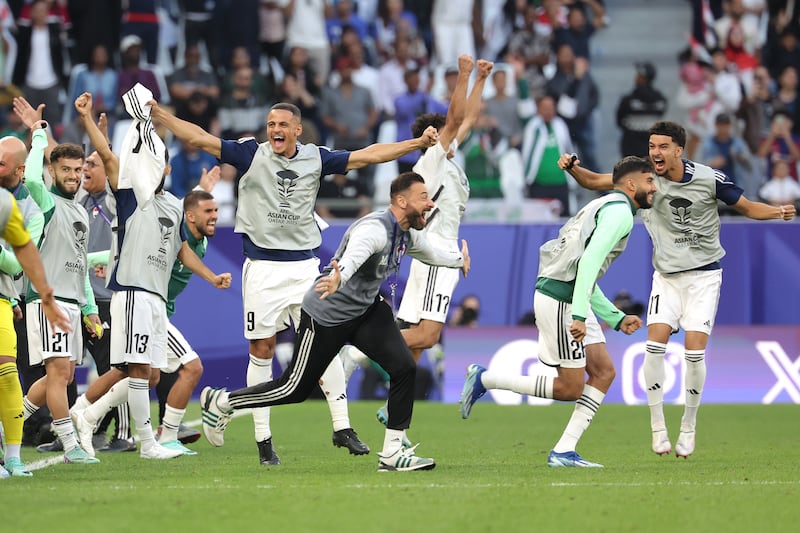While not too far from his homeland, Amir Al Ammari has felt the support of his compatriots throughout Iraq’s impressive journey to this juncture in the Asian Cup in Qatar.
It connects, he says, and in turn coaxes maximum effort from him and his teammates. It might even prove crucial as Iraq plot their path towards a second continental crown.
“Of course, it's a huge impact for us,” Al Ammari tells The National. “It feels like we're playing at home in every stadium we go to. It was 40,000 Iraqis [in last week’s 2-1 victory] against Japan and you could feel it.
"The atmosphere here was almost the same as in Basra. You could see also on the streets of Iraq, everybody was going out celebrating, as if we won the Asian Cup.
“If that's the small things we can do for them, win a football game to give them that happiness, that's all the motivation I need.”
Al Ammari, 26, was pivotal in the standout result of the rescheduled 2023 tournament thus far. Indeed, the Swedish-born midfielder, who plies his club trade there for Halmstads BK in the country’s top tier, has been one of the top players in Qatar.
Creative and combative, Al Ammari excelled in both the opening Group D win against Indonesia and then again in that now famous victory against Japan, the highest-ranked team in the competition and therefore viewed as title favourites.
Although rested in Wednesday’s late, late win against Vietnam in the final group game – Aymen Hussein converted a 102nd-minute penalty for Iraq to prevail 3-2 – Al Ammari is almost certain to be restored to the line-up for Monday’s last-16 tie with Jordan.
Having qualified for the knockouts as winners and also one of only three sides in Qatar with a 100 per cent record, Iraq enter the encounter at the Khalifa International Stadium in fine form.
Understandably, the run has buttressed belief.
“It's an amazing feeling,” Al Ammari says. “We won against Indonesia in a good way, fought for everything against Japan and took three points there, and then we won in a difficult manner, not the easiest match to play against a compact Vietnam.

“We always find ways to win our games; we believe every game is open until the last seconds. So that's the strength we have in the team, and the team is improving. We have good spirit within the squad.”
The togetherness, a key component since Spaniard Jesus Casas was appointed 14 months ago, could carry Iraq deep into the Doha tournament.
“It’s very important,” Al Ammari says. “That's the first thing we talked about when we gathered together: that we all need to move towards the same goal. Not 70 per cent of the group. Not 80, not 90. We need everybody and everybody needs to be ready to play.
“We’ve almost used every player during the tournament [only two of the 26-man squad have not featured], so it means a lot. We have quality in the team.
“It doesn't matter if you're on the bench or you're starting, we don't have any stars like that. Everybody in the team is important to change the game any time they come in. Everyone matters.
"That's the most important thing. And Casas has had a huge impact in that way.”
The unity is evident among the group, despite almost half the squad being born outside of Iraq, as Casas has shrewdly tapped into the diaspora in a bid to build a side to compete against the finest on the continent.
“We have a lot of fun outside of the field and now even on the pitch,” says Al Ammari, who represented Sweden at youth level before switching his allegiance to Iraq. “So as a group, we were united, we feel like one family, and we're all moving towards that same goal.
“We all want to go in that direction and reach as far as possible in the tournament. Coming out as No 1 in the group means very much for us, very much for the country.
“And I think we're sending a message to all the teams in Asia: that we are an up-and-coming country and we’re going in a good way.”
The optimism enveloping the team is drawing, perhaps predictable, comparisons to 2007, when Iraq began the Asian Cup with three wins from three group matches in Indonesia. They went on to defeat Saudi Arabia, three-time champions, 1-0 in the final.
However, Al Ammari is keen to remain in the present.
“These things we don't need to think about right now,” he says. “We need to take one game at a time, go step by step, and then see how far we can come.
“But, of course, if we go all the way and win, that will be incredible and give such a happiness to all the country."
The Jakarta triumph 17 years ago, which sits as Iraq's most memorable football feat, sparked jubilant scenes back in, what was at the time, a deeply fractured Gulf state.
The celebrations weren't experienced only there, though. They were evident, too, in at least one very happy Swedish household.
“I was watching the final in 2007 with my family," Al Ammari says. "And when you are that age, you never really think about maybe doing the same, that you're going to play these tournaments.
“But you always have a dream about it. So now I'm in the tournament, I can't settle for less.”
